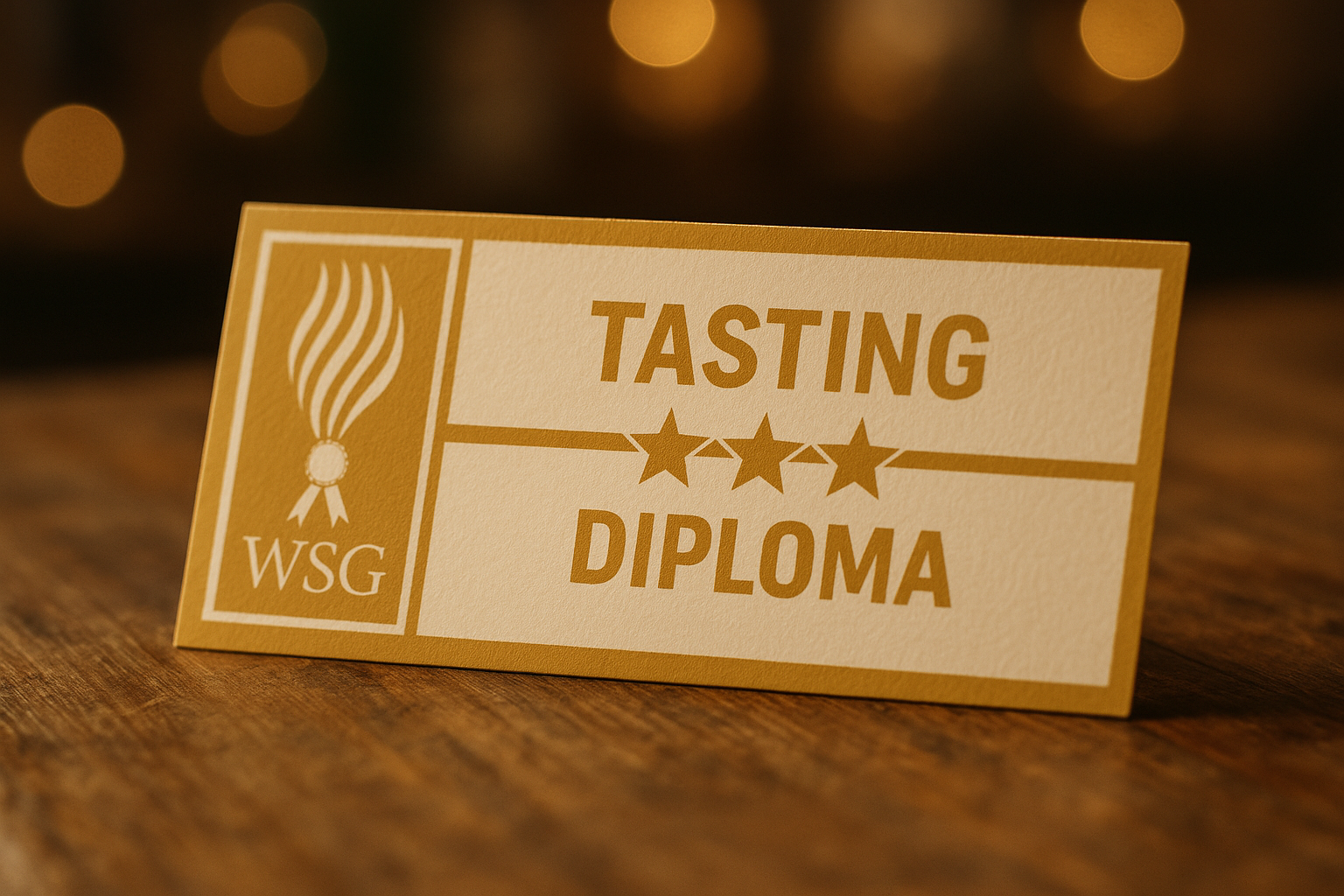BLOG
Why Wine Tasting Needs a Rethink and What We’re Doing About It
Julien Camus
Insights and Opinions

What happens when the very act of tasting wine no longer keeps pace with the wines themselves? What if the way we teach tasting is no longer fit for purpose—not for students, not for wines and certainly not for the future of wine culture?
These are some of the questions we find ourselves asking at Wine Scholar Guild (WSG). As an organization deeply committed to advancing wine education, we’ve spent years listening, teaching, researching and reflecting. And time and again, we came up against the same problem: wine education hasn’t evolved to match the wines that matter most today.
Meet The WSG Tasting Diploma
The old order is running out of energy. The global commodification of wine has stripped too much wine of its soul, reducing it to a standardized product that prioritizes predictability over authenticity. This has had a profound impact on the development of wine tasting.
Traditional tasting methods are built on systematic tasting protocols, technical details and an inflexible lexicon. It leaves students with a superficial understanding of wine, devoid of context, meaning and emotion.
We knew something had to change. At WSG, we believe it is time for a revolution — a complete reimagining of how to taste wine.
And so we decided to reimagine tasting.
Identifying the Gaps
Where does traditional wine tasting fall short? Through our extensive experience in wine education, we identified three critical gaps in the current tasting methodologies:
1. Outdated frameworks for an evolving wine world
Wine styles are evolving faster than wine education can keep up. New winemaking regions are emerging. Classic regions are shifting. Wine aesthetics are changing. But tasting methods remain static.
Standardized frameworks rely on fixed categories and predictable profiles. This leads to rote memorization, oversimplified and outdated stereotypes—many of which no longer reflect the wines made and enjoyed now.
Today’s most exciting wines cannot be found on the pages of yesterday’s textbooks.
2. Standardized tasting methods for standardized wines
The most common tasting methods prioritize technical correctness, but in doing so, they often flatten nuance. These methods create homogenized tasting notes that seem only to serve predictable commodity wines. They fail to capture the true essence of authentic wines of place that are driving today’s conversations.
These tasting methods are even more problematic given the lack of transparency in modern winemaking. Additives, manipulations and technological interventions go unnamed and are often not captured by the taster.
3. The taster has been ignored
You’ve been left out of the tasting process. Tasting is subjective, not objective. Wine tasting methods have previously focused entirely on the object of tasting—wine itself—and neglected the subject of wine tasting—the taster. They treat the taster as a neutral observer. In doing so, it leaves students with knowledge, but little joy—and no real understanding of themselves as tasters.
By attempting to make the subjective taste objective, it strips away the taster from their emotions, pleasure and individuality.
Closing the Gaps
At WSG, we don’t think tasting should be reduced to a technical checklist. We think it should be alive—with meaning, movement and connection. Tasting deserves to be reconnected to both the soul of the wine and the soul of the taster.
Our ambition is to close the critical gaps left open by traditional methods by bringing tasting back to life—making it dynamic, meaningful, communicative and profoundly human.
We built the WSG Tasting Diploma to offer something truly different. It’s not just a course—it’s a recalibration of how we engage with wine.
1. Evolving Methods for an evolving world
Wine keeps moving. So should how we taste it. The Diploma teaches an adaptive, mindful and critical approach. You’ll be equipped to engage with wines from anywhere, in any style—without falling back on stereotypes. Instead of memorizing the past, you'll be interpreting the present—and shaping the future.
2. Authenticity over standardization
Commodity wines don’t need thoughtful tasters. Great wines do. The WSG Tasting Diploma gives you the tools to detect true craftsmanship, recognize manipulation and distinguish authentic wines from engineered commodities. You’ll learn to read between the lines, identify transparency versus intervention and interpret wines that speak of their place and people.
3. Re-centering the taster
You are not a machine—and tasting is not a mechanical act. In our program, you’ll reconnect with your senses, emotions and intuition. You’ll learn to recognize your personal tasting patterns, build self-awareness and trust your own experience—elevating your tasting from technical evaluation to authentic interpretation.
A New Era of Wine Tasting
We believe that tasting wine is both an intellectual pursuit and a human experience. It should involve curiosity, self-reflection and a willingness to engage with wines that speak in diverse, often quiet, ways.
The WSG Tasting Diploma is more than a course; it’s a movement towards a more holistic and human approach to wine tasting. By addressing the shortcomings of traditional methods, we aim to reconnect tasting with both the soul of the wine and the soul of the taster.
If you’re ready to move beyond the limitations of traditional tasting and into a richer, more personal relationship with wine, we invite you to learn more.




